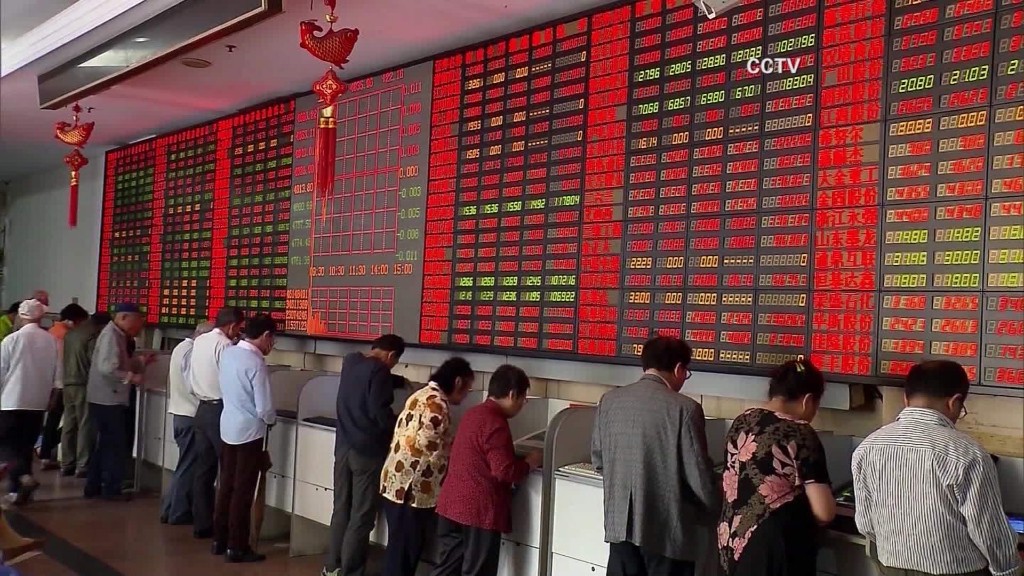
China's stock market is riddled with shortcomings and its regulations aren't up to the job -- and that's according to the man in charge of supervising it all.
The share price roller coaster of recent months reflected an "immaturity" of both the Chinese market and the traders, said Xiao Gang, the chairman of the China Securities Regulatory Commission.
His comments over the weekend offer a surprisingly frank assessment of China's boom-and-bust equity market from the country's top watchdog.
The volatility "shows an incomplete trading system, an imperfect market system and an unadapted regulatory system," Xiao said at a meeting of Chinese securities officials Saturday, according to a transcript posted on the commission's website. "It also exposes loopholes, maladjustments and ineffectiveness of supervision from the CSRC."
It's unusually forceful self criticism. Internal dialogue from institutions is not regular reading in China, so publishing Xiao's words suggests the country's leadership is not happy with how events unfolded during the summer.
On Monday, Reuters reported that Xiao had offered to resign. But the CSRC denied the news agency report in an official social media post, saying it would ask for it to be corrected.
Related: College student burned twice by China's market turmoil
China's stock market has given investors whiplash since June. After swelling to record levels in the first half of last year, the market's bubble popped in spectacular fashion. The benchmark Shanghai Composite crashed, wiping out about a third of its value in less than a month.
Authorities introduced increasingly draconian measures to try to stop the losses, including banning large shareholders from selling, outlawing forms of short-selling and chasing down individuals they blamed for manipulating the markets.
Regulators also implemented a circuit-breaker mechanism at the start of this year to try to protect small investors from big market swings. But instead of offering protection, it created panic selling and had to be withdrawn.
Related: Investors are terrified ... and they're overreacting
Xiao says his organization now must learn lessons from foreign markets -- but with adaptions to Chinese conditions.
Regulators aren't likely to be able to draw a line under the market slump anytime soon, though.
Shares on the Shanghai Composite are still overvalued compared with major global indexes, some analysts say.
In a normal market, that would be a clear sell signal. But even Chinese authorities now admit that their market doesn't work as well as it should.
-- Jessie Jiang and Shen Lu contributed to this report.


